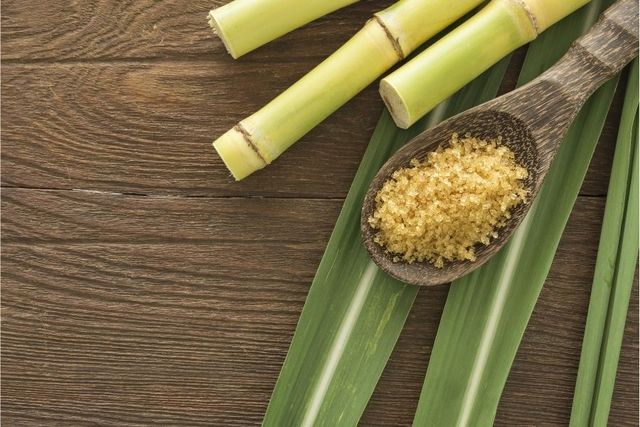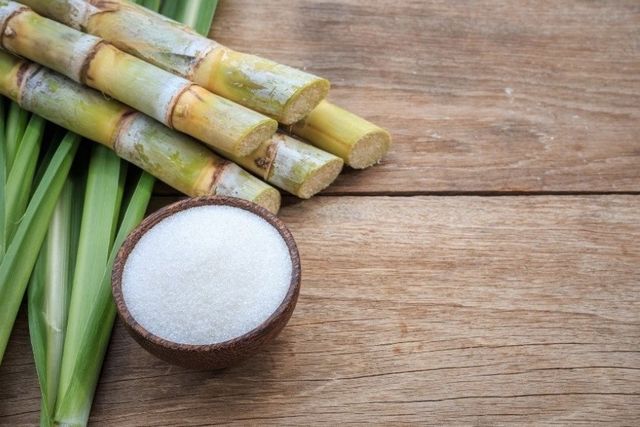Sustainable Sugarcane Products: From Sweeteners to Eco-Friendly Item
The capacity of sustainable sugarcane items extends beyond standard sweeteners to encompass a range of environmentally friendly goods, offering an engaging situation for their combination right into contemporary customer practices. As the globe grapples with pushing environmental problems, sugarcane arises as a versatile source capable of resolving both nutritional needs and sustainability objectives.
Summary of Sugarcane Sustainability
As the demand for eco friendly items expands, comprehending sugarcane sustainability becomes increasingly essential. Sugarcane, a versatile plant, is grown largely in exotic and subtropical regions, and its sustainability is critical for both environmental wellness and economic feasibility. Sustainable sugarcane farming methods concentrate on reducing ecological influence while making the most of performance and productivity.
Secret aspects of sugarcane sustainability include effective land usage, minimized chemical input, and enhanced water management. Practices such as plant rotation, incorporated parasite management, and organic fertilizing add to soil wellness and biodiversity. Additionally, innovative innovations, such as precision farming, aid maximize source usage and reduce waste.
In addition, sugarcane is a renewable energy, with spin-offs that can be made use of in numerous sectors, from biofuels to naturally degradable plastics, consequently lowering dependence on nonrenewable fuel sources and lessening carbon impacts. Accreditations like the Bonsucro typical urge lasting techniques throughout the supply chain, advertising transparency and responsibility.

Sugarcane-Based Sweeteners
Using sugarcane as a main source, sugarcane-based sugar have actually acquired prominence as natural alternatives to polished sugars and sweetening agents (sugarcane product). These sugar, stemmed from the extraction and handling of sugarcane juice, use a series of items that deal with diverse consumer preferences, consisting of organic and minimally processed alternatives
Amongst one of the most significant sugarcane-based sugar are raw walking cane sugar, panela, and molasses. Raw walking stick sugar retains even more of the natural tastes and nutrients discovered in sugarcane, making it a preferred selection for health-conscious consumers. Panela, a traditional Latin American sugar, is produced by vaporizing sugarcane juice, protecting its natural minerals and vitamins. Molasses, a result of sugar extraction, is abundant in antioxidants and essential nutrients, offering as a nourishing sweetening agent in numerous culinary applications.
The expanding demand for sugarcane-based sugar is driven by increasing awareness of wellness and sustainability issues related to standard sugar. By choosing sugarcane-derived products, customers not just support sustainable agricultural practices however likewise add to a healthier way of life, straightening their nutritional choices with their ecological worths.
Biodegradable Packaging Solutions
Becoming a sensible alternative to traditional plastics, eco-friendly packaging services originated from sugarcane are transforming the product packaging market. These ingenious products supply an environmentally friendly choice that attends to the growing issues over plastic contamination. Using the all-natural sugars discovered in sugarcane, makers are creating numerous kinds of eco-friendly product packaging, consisting of movies, containers, and covers that disintegrate a lot more swiftly than typical plastics.
The key advantages of sugarcane-based product packaging depend on its sustainable sourcing and its capacity to damage down into non-toxic byproducts. Unlike fossil fuel-derived plastics, which can linger in the setting for centuries, sugarcane product packaging typically decomposes within a couple of months under appropriate conditions. This reduction in waste not only alleviates garbage dump overflow but also lowers the carbon impact related to packaging materials.
In addition, sugarcane-derived product packaging maintains durable efficiency qualities, providing similar useful source resilience and functionality see post to standard choices. As consumers and organizations significantly prioritize sustainability, the fostering of naturally degradable packaging solutions stands for a considerable action towards a round economic climate, where products are reused and regenerated instead of discarded. This change not only boosts brand photo however also adds to a much more sustainable future for the world.
Eco-Friendly Textiles and Fabrics
Environmentally friendly fabrics and fabrics are gaining grip in the style and home products markets as consumers significantly demand sustainable choices to conventional products. Amongst the remarkable options are materials stemmed from sugarcane, which provide an eco responsible alternative to artificial fibers. These fabrics are produced with a procedure that utilizes the sustainable sources found in sugarcane, substantially reducing reliance on petroleum-based materials.

Brands are progressively incorporating environmentally friendly fabrics right into their line of product, mirroring a broader commitment to sustainability. This shift is not merely a pattern however a needed development in action to ecological problems. As the marketplace for sustainable textiles expands, consumers can look onward to ingenious styles that combine design with eco-friendly obligation. Eventually, eco-friendly fabrics and fabrics stand for a significant step towards reducing the garment industry's ecological footprint while dealing with the growing need for liable customer choices.
Innovations in Lasting Farming
Transforming agricultural techniques, developments in sustainable farming are changing the way plants are expanded and handled. These developments concentrate on reducing ecological effect while optimizing effectiveness and efficiency. Methods such as accuracy agriculture make use of data analytics and satellite images to optimize resource usage, guaranteeing that water, plant foods, and pesticides are used just where needed. This targeted strategy not just minimizes waste yet likewise boosts crop returns.

Additionally, agroecology, which incorporates eco-friendly principles into farming, promotes biodiversity and soil health and wellness. Practices such as plant turning, cover chopping, and intercropping foster resistant environments that can hold up against pests and climate variations - sugarcane product. Furthermore, using natural plant foods and biopesticides adds to much healthier dirts and ecosystems

Together, these innovations are not just improving the agricultural landscape but also contributing to a more sustainable future for sugarcane and various other plants, lining up agricultural exercise with ecological stewardship.
Final Thought
Sustainable sugarcane products stand for a considerable improvement in environment-friendly alternatives, spanning from all-natural sugar to naturally degradable goods. The farming of sugarcane with sustainable techniques not only enhances environmental wellness however also adds to economic viability. As customer preferences increasingly lean in the direction of sustainable alternatives, the adaptability of sugarcane as a renewable energy ends like this up being significantly appropriate. This trajectory underscores the relevance of continued innovation and commitment to lasting methods within the sugarcane sector, fostering a more lasting future.
The potential of lasting sugarcane products extends past typical sweeteners to include an array of eco-friendly products, presenting an engaging case for their combination right into contemporary customer practices. Sustainable sugarcane farming methods focus on reducing eco-friendly impact while making best use of productivity and earnings.
Lasting sugarcane products represent a considerable improvement in green alternatives, spanning from natural sweeteners to naturally degradable goods. The farming of sugarcane via sustainable practices not just enhances environmental wellness yet likewise contributes to financial practicality. As customer preferences progressively lean towards sustainable choices, the adaptability of sugarcane as an eco-friendly source comes to be increasingly pertinent.